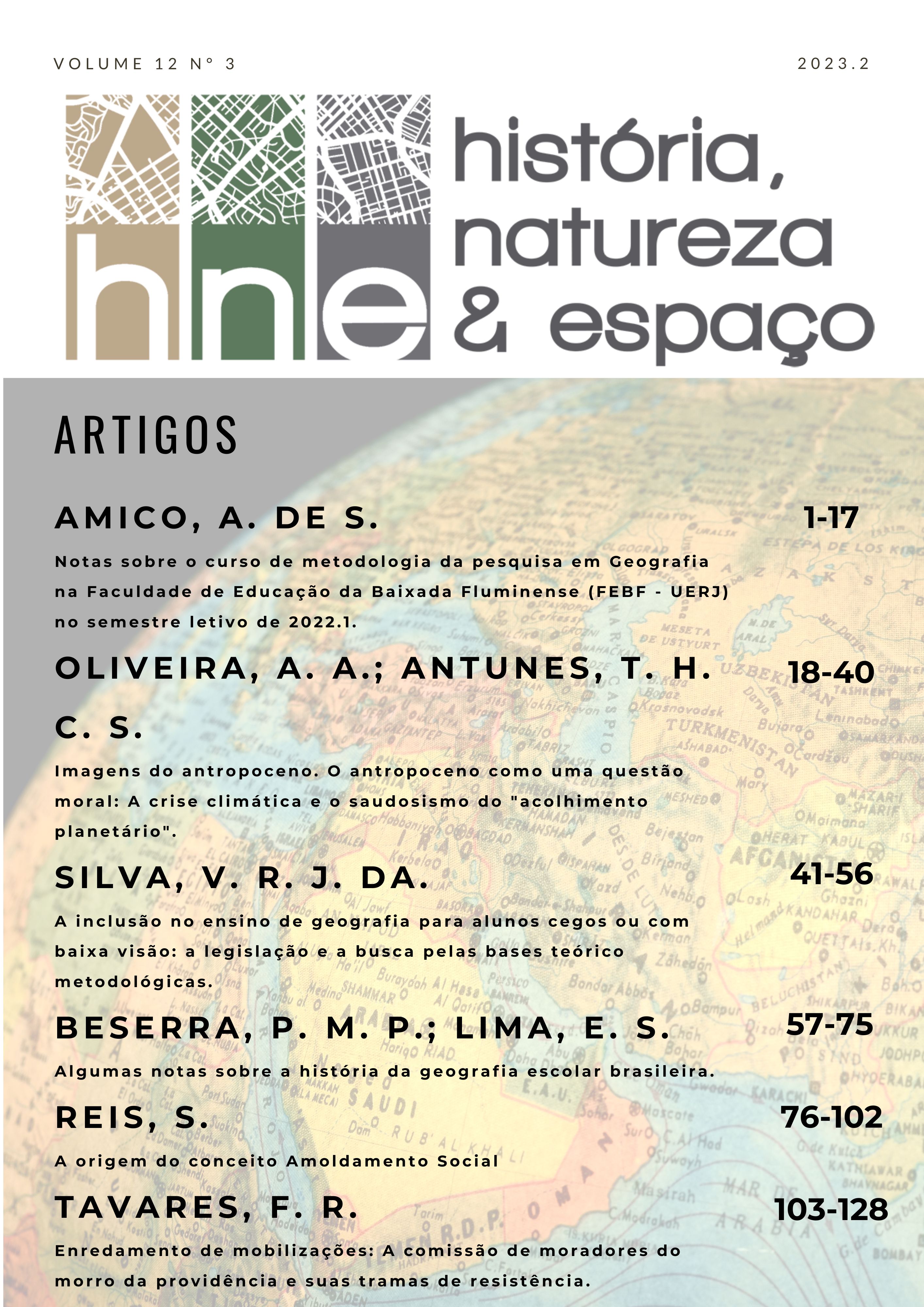A inclusão no ensino de geografia para alunos cegos ou com baixa visão
a legislação e a busca pelas bases teórico metodológicas
DOI:
https://doi.org/10.12957/hne.2023.80821Schlagworte:
Inclusão na educação, legislação, ensino de GeografiaAbstract
Este artigo representa o relato do percurso, ainda que de forma inicial, que nós do Laboratório de Ensino Inclusivo de Geografia (LEINGEO) da Faculdade de Educação da Baixada Fluminense (FEBF/UERJ) tivemos entre os anos de 2017 e 2021. A preocupação com a inclusão no ensino escolar vem ao encontro de conquistas no sentido de ampliar os direitos da pessoa com deficiência e demais coletivos antes subsumidos na sociedade brasileira. De modo que, temos por desafio e horizonte contribuir com discussões a respeito da diversidade e do respeito às diferenças. Reconhecendo que há especificidades, focamos em discutir a respeito da inclusão na educação para alunos cegos. Desta forma, nos sentimos tateando esse universo que possui vários caminhos a serem percorridos. Entendemos que, temos de pensar na situação jurídica das políticas públicas, nas práticas educativas, no paradigma que orienta nosso modo de ver e pensar a inclusão, na base teórico-metodológica que nos possibilita pensar as práticas inclusivas para o ensino de geografia a pessoas com deficiência visual, observar as vivências de alunos cegos e de instituições que os atendem etc. Neste relato de atividades desenvolvidas nos debruçamos sobre as seguintes questões: o que entendemos por inclusão na educação? Como as políticas públicas representam avanços ou retrocessos na busca pela inclusão? Que aportes teóricos-metodológicos iniciais no campo da Geografia convergem para pensarmos práticas de ensino inclusivas? Sendo assim, apresentamos os primeiros caminhos tateados pelo nosso grupo e ao final, outras sendas que precisamos trilhar por meio leituras e reflexões . Enfim, novos questionamentos e buscas a serem feitas.
Downloads
Downloads
Veröffentlicht
Zitationsvorschlag
Ausgabe
Rubrik
Lizenz
Copyright (c) 2023 Vânia regina jorge da Silva

Dieses Werk steht unter der Lizenz Creative Commons Namensnennung - Nicht-kommerziell - Keine Bearbeitungen 4.0 International. Direitos Autorais para artigos publicados nesta revista são do autor, com direitos de primeira publicação para a revista. Em virtude da aparecerem nesta revista de acesso público, os artigos são de uso gratuito, com atribuições próprias, em aplicações educacionais e não-comerciais.

